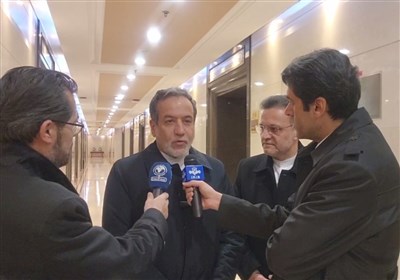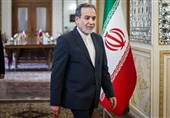US Scientists Rebuke Trump over Coronavirus Response, Other Affronts
TEHRAN (Tasnim) - More than 1,200 members of the US National Academy of Sciences have rebuked Donald Trump’s “denigration of scientific expertise”, an unusual move for a community which has historically avoided the political sphere.
The co-organizers of an open letter seeking to “restore science-based policy in government” say they have rapidly gained signatures during the coronavirus pandemic.
Scientists have watched the Trump administration downplay the crisis and ignore expert advice, including the need to wear masks and the dangers of using unproven drugs.
In the latest affront to the scientific world, the White House is reportedly seeking to block funding for testing and tracing, which scientists widely agree is critical to slowing the spread of the coronavirus.
On Sunday, Trump called the nation’s top infectious disease expert, Anthony Fauci, a “little bit of an alarmist”.
The open letter began as a response to Trump’s refusal to accept and act on warnings from climate scientists. In September 2016, 378 academy members wrote that withdrawal from the Paris climate agreement would “have negative consequences for the world’s climate system and for US leadership and credibility”.
In April 2018, more than 1,000 scientists signed a version of the letter which warned that Trump’s “dismissal of scientific evidence in policy formulation has affected wide areas of the social, biological, environmental and physical sciences”.
The three organizers have since invited members who joined NAS in 2019 and 2020 to sign on to the letter. More than 62% did, bringing the total to 1,220 out of a membership of about 2,900. Some of the signatories work in government or have federal grants but felt compelled to add their names despite professional risks.
Benjamin Santer, a climate researcher at Lawrence Livermore National Laboratory and a co-organizer, said the administration has changedwhat it means to be a scientist in America, The Guardian reported.
“We no longer have the luxury, in my opinion, of retreating to our offices and closing the door and hoping bad stuff will go away,” he said. “That’s a singularly poor survival strategy when you’re facing a global pandemic or global climate change. Bad stuff isn’t going to go away.”
The academy – which was formed during the civil war – exists to provide independent, objective advice to the nation. Members are elected by their peers for outstanding research contributions. About 500 current and deceased members have won Nobel Prizes.
Charles Manski, the second co-organizer, an economist at Northwestern University, acknowledged that some might view the letter as political but said the scientists do not. They just want policy to be informed by the best possible information.
“It’s one thing for the political establishment not to respond very well to a crisis that happens around the world,” Manski said. “It’s quite another thing to be actively denigrating the science and making things up routinely.”
Trump has recently attacked guidelines for school reopening from the Centers for Disease Control and Prevention (CDC), calling them expensive and impractical.
In response, four former directors of the CDC wrote an op-ed in the Washington Post, warning that “public health experts face two opponents: Covid-19, but also political leaders and others attempting to undermine” their work.
“These repeated efforts to subvert sound public health guidelines introduce chaos and uncertainty while unnecessarily putting lives at risk,” they said.
The Trump administration has ignored or silenced science so many times that the Union of Concerned Scientists maintains an archive of incidents. They range from contradicting hurricane forecasting to dismantling health protections at pork processing plants.
Ray Weymann, the third co-organizer of the open letter and a retired astronomer and astrophysicist, said frustration with the coronavirus response is just the latest reason scientists are signing.
“Every single week practically you hear about scientists being dismissed or relocated and key positions not being filled,” he said. “Over the last two years this feeling just built up more and more and it was really highlighted by the pandemic.”






